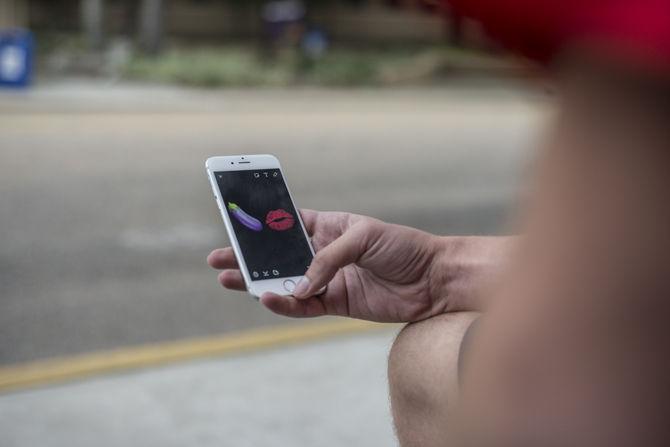There is no trust in the digital age.
Sending sexually explicit photographs, GIFs and memes to one’s significant other or a potential hook-up is standard procedure for millennials. After picking the right filter to make sure everything sits and measures up perfectly, these pictures are a few clicks away from forever being inscribed on the Internet.
Not only will these pictures never leave the Internet, the person who receives these pictures has complete control over them for as long as they can hang on to them.
Besides putting your future in somebody else’s hands, there can be legal repercussions when keeping it real goes wrong.
In late September, two North Carolina teenagers were charged with sexually exploiting themselves after they both consented to sending nude pictures to one another. Both were charged with felonies and could spend significant time in jail if convicted.
Now, imagine on your wedding day: Instead of passive aggressively judging people based on what kind of gifts they brought, you have to explain to your grandmother why there’s a Twitter account dedicated to your bare phallus. Or on the day of your big job interview, you future boss asks why the #PoochPic applies to you.
These scenarios may be extreme, but according to a recent study commissioned by adult novelty site Adam and Eve, 56 percent of people who sext said they believe it’s helped their relationship. So no matter how dangerous it is, sexting will not stop.
Many feel safe using apps like Frankly and Snapchat, as they heavily emphasize their ability to have messages automatically delete themselves.
But Snapchat allows users to screenshot images. This way, when your friend snaps you a picture of Drake in The 459, you can always have the picture.
While it alerts senders if their pictures have been screenshot, it does nothing to prevent it from happening. Frankly attempts to circumvent this problem by creating “a user interface that never shows the names of the participants on the same screen as the message,” This is a clever attempt on Frankly’s part, but it still does not block someone from screenshotting in the first place.
Sending sexually explicit messages to another person is never a safe, and no amount of coercion or promise of favors should make a person send them.
Trusting someone in an age where nothing is truly deleted and where sharing photos is as natural as talking does not make sense. However, if one cannot live without potentially exposing themselves to the entire world, something needs to change.
Silicon Valley needs to invent a way of tracking pictures to assure they are destroyed. Maybe the USPS can start a millennial service specifically for sending photographs on disintegrating paper, which melts under the light of copy machines.
If this happens in the next day or so, then go on and send those pictures with no abandon. Unfortunately, it’s not likely to happen, so your best bet is to avoid sending any kind of media that could be misconstrued as sexual in nature.
Falling for claims of undying love or denying these pictures will be seen by others is foolish. Twenty years down the line, the knowledge that one less picture could pop up at the PTA meeting should make all of us rest easy.
Garrett Hines is a 21-year-old political science senior from Monroe, Louisiana. You can reach him on Twitter @garrettH_TDR.
Opinion: Sexting is never safe
October 4, 2015
More to Discover








